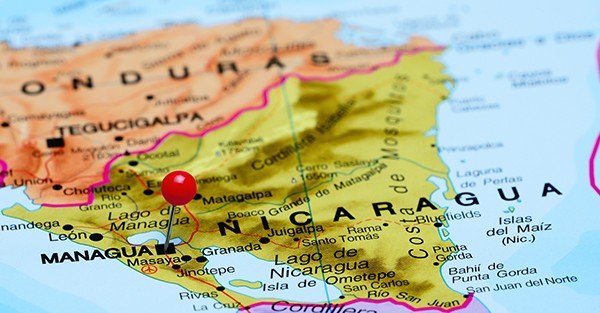Is Nicaragua still a good place to consider for second residency? Today, we revisit whether the country still makes sense as a Plan B destination. Let’s get into the details below…
Situated between the Pacific Ocean and the Caribbean Sea, Nicaragua is a Central American nation of around 6.6 million people. It’s a country that’s featured extensively in the pages of Sovereign Man – albeit not very recently.
One of our Sovereign Confidential members recently asked for our take on Nicaragua as a destination for second residency and investing today. While we published a comprehensive premium SMC Alert on this country in early 2018, the situation on the ground has changed somewhat – and not necessarily for the better.
But don’t get us wrong – we still think the country has a LOT going for it.
In our 2018 Alert we mainly focused on it as a potential retirement destination where your savings could go a long way, and as a place for potential real estate investments.
Most of those virtues still stand today.
Nicaragua boasts one of the cheapest costs of living in the Americas (it’s rated as “2/7 – Very Cheap” in the Sovereign Man Cost Of Living Index).
It is also one of the safest countries in the region.
The weather is also great, the scenery is beautiful, and you can find anything from sandy beaches to volcanoes in this diverse country.
There’s a lively (and growing) expat community, especially in Granada – a colonial town by the lake, and San Juan del Sur, a famous surfing spot. And from our experience, the locals are very welcoming.
Add pretty decent and inexpensive healthcare options, and it’s clear why Nicaragua attracts scores of expats (and especially retirees).
That said, no place is perfect.
We are very aware of the difficult political situation in Nicaragua. Strongman Daniel Ortega has been in power since 2007, and doesn’t seem to have any desire to give up his control.
The political situation in the country has remained complicated after mass protests against the government began in 2018. And it’s hard to say whether the tensions will slowly dissipate, or whether there will be fresh rounds of protests, violence, and government oppression in the future.
(And as we’ve seen in the past two years, things can go broadside – practically anywhere in the world – at a moment’s notice…)
Also, Nicaragua continues to be one of the poorest countries in Central America.
(If you want more political stability and prosperity, you may want to consider neighboring Costa Rica or Panama as a Plan B destination. However, neither of these are as cheap as Nicaragua.)
Still, it’s one thing to look at stats, and quite another to gauge what’s happening on the ground.
We spoke with a few friends who spent time in Nicaragua recently, as well as a service provider who is very familiar with the government’s policies.
Everyone we spoke with assured us that the current government does its best to attract more foreigners to Nicaragua’s shores, as they are one of the government’s only sources of revenue.
The local economy suffered during the pandemic, so tourists and expats (and their dollars) are very welcome there right now.
Moreover, the flow of expats bound for Nicaragua has increased during the last few years, and demand for both long and short-term rentals has gone up. Real estate in popular areas like San Juan del Sur is now a “seller’s market”.
Also, the local currency, the córdoba, has been rather stable. More precisely, it continued its gradual depreciation against the US dollar. Hence it didn’t suffer the sudden loss in value that many other Latin American currencies recorded recently. (The Nicaraguan government tightly controls the cordoba’s exchange rate.)
Overall, we think that the outright risk of property confiscation is low, especially if all you own is a “regular” house or an apartment, and not some strategically important piece of land.
Also, a local lawyer whom we spoke with assured us that he is not aware of any property being confiscated from foreign owners.
(It must be noted, however, that it has become harder for foreigners to invest in beachfront properties, in particular.)
But to sum it up – currently, there doesn’t seem to be any strong reason for concern in terms of potential property confiscation, heightened political unrest or personal safety issues. The country should still be a welcoming and inexpensive place to obtain residency and spend some time in.
Yet, it’s just impossible to know whether the country will remain (relatively) stable politically for a while, or whether it will plunge into turmoil again, as it has done in the past.
And at the end of the day, it really depends on what sort of potential risks and inconveniences you’re willing to put up with.
In Latin America, you also have a range of other interesting options, including Mexico, Costa Rica, Panama and Brazil. We like all of these countries, and we’ve covered them, in-depth, as solid Plan B options in the pages of Sovereign Confidential.
The bottomline
No place is perfect, and Nicaragua, too, has its fair share of issues and challenges. But if you’re looking for a budget-friendly retirement or remote working destination, combined with epic scenery and scores of lifestyle benefits, then Nicaragua could tick a lot of important boxes.








